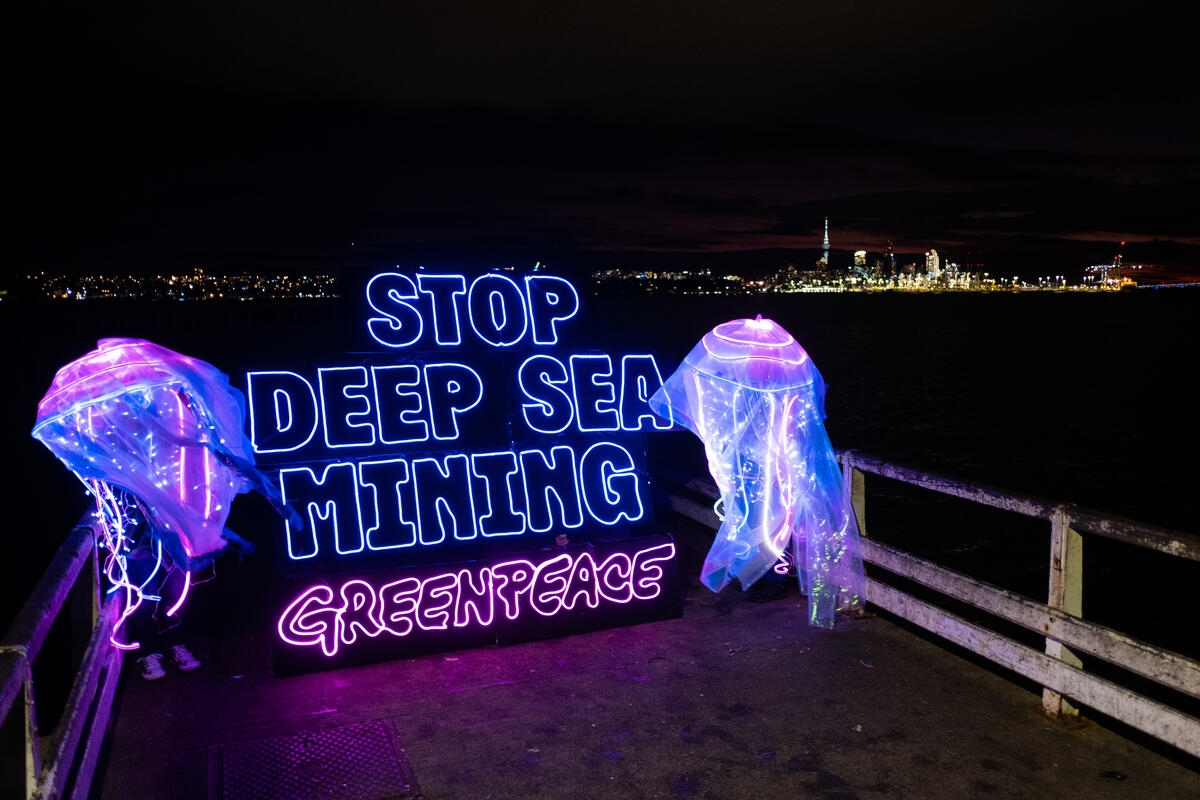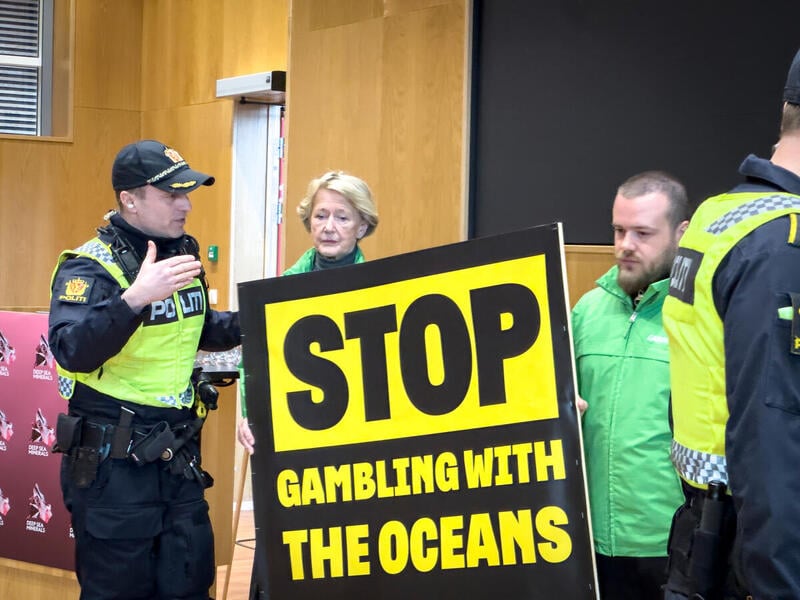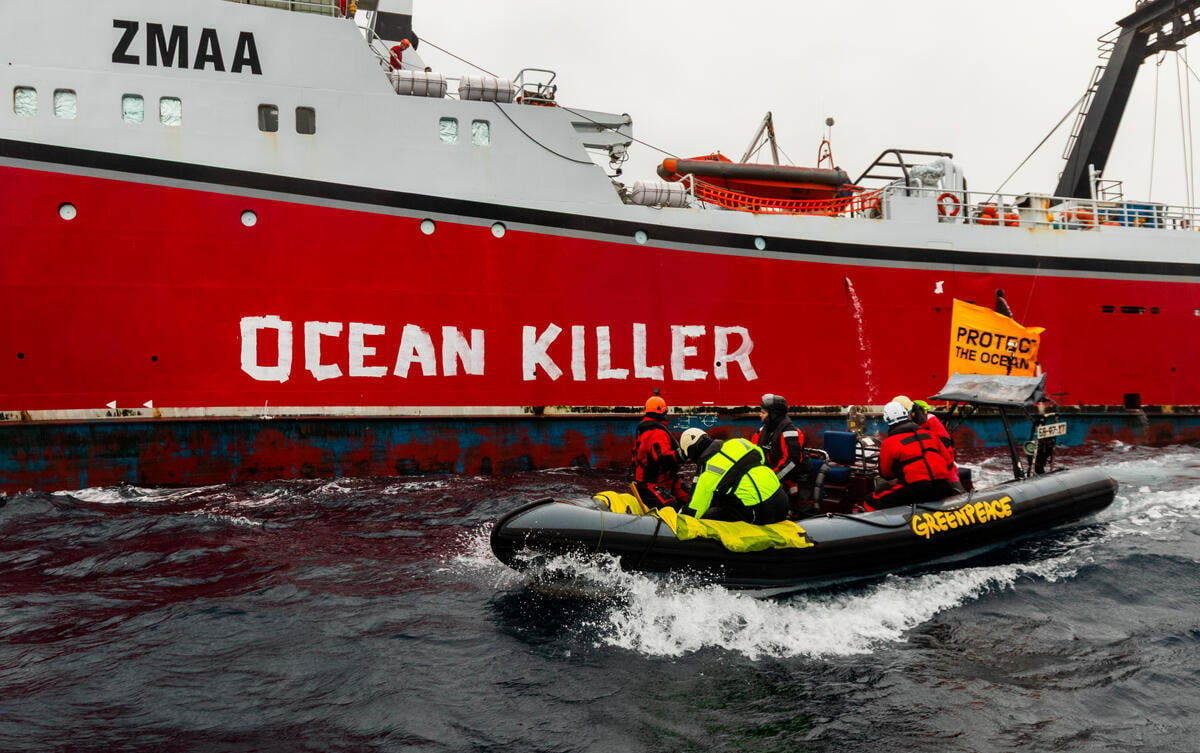Dakar, Senegal – Greenpeace announced today that it has signed the call to action by the international Coalition of Small Scale Fishers, a list of demands from artisanal fisheries workers directed at leaders and governments. It calls for communities to have preferential access to coastal areas, that they should co-manage these, and that women workers’ active contribution to this process must be guaranteed.[1]
Anta Diouf, a woman fish processor from Mballing and a member of the Senegalese Network of Artisanal Fishing Women, said: “Where we used to have fifty boxes of fish to process, today we can’t even get twenty boxes. This is the terrible consequence of the trawlers overfishing, and of the fishmeal factories selling our fish so they can be used as animal feed thousands of miles away. When I remember those beautiful moments at the fishing dock with endless fish, and then I think about the current situation, I have tears in my eyes. This is why we have to keep fighting for our rights.”
The announcement marks International Women’s Day, which comes as international momentum builds amongst grassroots groups of women fisheries workers that are organizing against industrial overfishing, coastal destruction and attacks on their rights.
At a joint press conference held in Saint Louis, Senegal, by the Senegalese Network of Artisanal Fishing Women, NGO IDinsight and Greenpeace Africa, women fish processors’ leaders demanded that the Senegalese authorities keep their promise to protect the rights of women fish processors.[2] IDinsight also released research showing that women in the artisanal fish processing sector directly and indirectly create hundreds of thousands of additional jobs. The study also shows that women in the sector are often the primary breadwinner in their households, and that they view a lack of legal recognition, industrial overfishing, and a lack of access to finance as key obstacles to their livelihoods.
Internationally, a video of women fisheries workers and ocean protectors from Chile, Mauritania, Senegal, Sweden, Thailand and Indonesia has been published by Greenpeace International. In the powerful and inspiring video, women describe the problems they face, but also how they are fighting for change.[3] At a meeting in Ghana last month, women fisheries workers issued the African Small Scale Fishers’ Call for free and equitable access to marine and inland water resources.[4] Tomorrow, women from West Africa, the Baltic and Scotland will meet through NGO Feedback to connect communities and share experiences.[5]
This busy period of activity comes ahead of a plan to scale up support for artisanal fisheries workers on a global level, sharing skills and data so that communities can fight back against illegal and industrial overfishing, the fishmeal and fish oil industry, intensive salmon aquaculture, and offshore oil, gas and minerals extraction. Greenpeace will be rolling out new support for grassroots fisheries activists fighting for their rights.
Jull Takaliuang, the leader of the Sangihe women’s movement, which has gone through a long and complicated trial to defend their community’s land from mining destruction, said: “If we don’t fight back, 57% of the coastal area here is threatened with massive damage by mining exploitation. This is a small island. It should be protected, not exploited. After going through a long judicial process, don’t torture us anymore with various tricks to deprive us of our home.”
Nichanan Tanthanawit, Oceans Campaigner at Greenpeace Thailand said: “Women in the Chana district here in Thailand are fearless frontline defenders of their hometown, fighting with unrelenting determination to protect their coastal village from a huge industrial park and deep sea port – even in the face of possible jail. For coastal communities around the world, whether you’re a woman or a man, you have got to fight for the future of your children. That’s bigger and more powerful than any industry and any government.”
ENDS
Notes
[1] The call to action from small-scale fishers can be found on the Coalition of Small Scale Fishers website.
[2] Photos of the event will be available in the Greenpeace Media Library. The Senegalese Ministry of Fisheries pledged to sign a decree protecting the rights of women fish processors in August 2017.
[3] The video will be available on Greenpeace International’s social media channels and in the Greenpeace Media Library.
[4] Details from the Ghana meeting and African Small Scale Fishers’ demands
[5] Details of the online meeting and a link to register can be found on Twitter.
Contacts
Richard Sayeed, press contact for Greenpeace Africa (West Africa): [email protected]
Greenpeace International Press Desk: +31 (0) 20 718 2470, [email protected], (available 24 hours)
Follow @greenpeacepress on Twitter for our latest international press releases.



